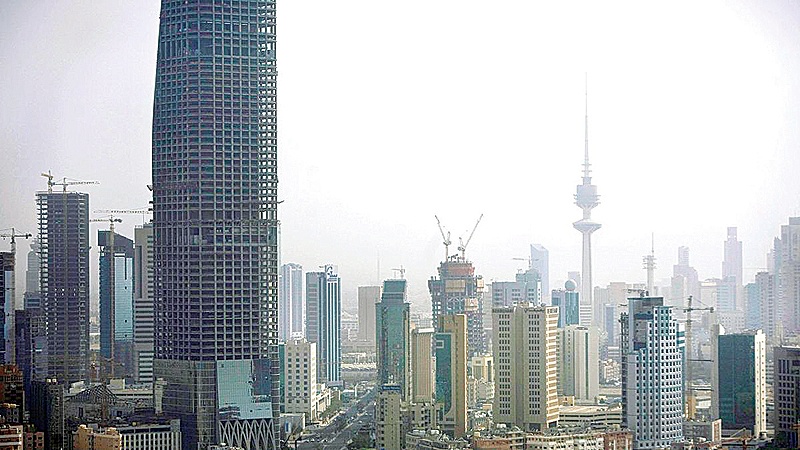Global equity markets subdued in August
KUWAIT: Kuwait has awarded $358 million worth of contracts for the development of the Al-Mutlaa Residential City, one of the country's most vital housing projects, reported state news agency Kuna. The establishment, completion, and maintenance contract covers the development works of roads and intersections in the residential project, stated the report. Saudi Arabia's economy is expected to continue its recovery after contracting in 2017 which is led by unprecedented government spending that targets the development and stimulation of the private sector along with job creation. The non-oil sector is expected to accelerate to 3.2 percent in 2021 as the Saudi government shifts its efforts towards a diversified economy, according to a new research by NBK. The UAE will impose 100 percent selective tax on electronic smoking products and a 50 percent tax on sweetened drinks starting from January 1, 2020, state news agency WAM reported. The new decision is part of the government's continuous efforts to promote healthy lifestyles in the UAE community and restrict the spread of diseases stemming from consumption of harmful goods.
In Qatar, the central bank cut its lending rate by 25 basis points to 4.75 percent in August, basing its decision on the evolving domestic and international macroeconomic developments. The move follows the US Federal Reserve's decision to cut interest rates for the first time in over a decade. In Oman, Oman's economy is still in the early stages of recovery and is expected to experience modestly weaker growth of +2.8 percent in 2019, down from an estimated +3.3 percent in 2018 but up from the -0.9 percent drop in 2017, according to a report by the Institute of Chartered Accountants in England and Wales (ICAEW). Oman is expected to continue with its economic diversification efforts to drive growth in its economy as it launches the second phase of its industrial strategy which aims at identifying the policies and tools required for the successful implementation of the strategy. In Bahrain, the government narrowed its budget deficit to $1 billion in the first half of 2019, ahead of its projected deficits reduction schedule, according to a statement from the Ministry of Finance and National Economy. The results demonstrate Bahrain's commitment to balancing fiscal responsibility with economic growth and are a direct consequence of initiatives launched under the Fiscal Balance Program.
Global equity markets weakened during the month of August as the MSCI World Index declined by -2.24 percent as trade war tensions between the US and China escalates. In developed markets, the FTSE 100 index was the worst performing index followed by the Nikkei 225 index and the Deutsche Boerse German index. In the United States, the S&P 500 fell by -1.81 percent MTD primarily due to the on-going trade war with China where the United States announced that it will increase tariffs to 30 percent from 25 percent on October 1 on $250 billion worth of Chinese goods. Additionally, on September 1, another planned tariffs of 15 percent on $300 billion worth of Chinese exports will go into effect. In the UK, FTSE 100 was the worst performer decreasing by -5.0 percent MTD amid on-going concerns of Brexit as Boris Johnson's plan to suspend the parliament was approved by the Queen, increasing the possibility of a no-deal Brexit.
In Germany, the Deutsche Boerse index fell by -2.05 percent MTD as the country's economy contracted due to global uncertainty and the heavy toll the trade war took on its manufacturers. In Japan, the Nikkei 225 declined by -3.80 percent, investors sentiment was low due to growing trade disputes between Japan and South Korea, concerns over the slowing global economy, and the on-going US and China trade war.
In China, the Shanghai Composite fell by -1.58 percent where China retaliated against the US decision to increase tariffs on its goods by applying new tariffs between 5 percent and 10 percent on $75 billion worth of US goods. In commodities, oil prices continued to decline during the month as WTI fell by -6.02 percent to close at $55.1 bb/l and Brent slipped by -8.21 percent to close at $59.3 bb/l. Prices dropped as an escalating US-China trade war lowered confidence in the global economy and fanned concerns about an economic slowdown. Meanwhile, gold rallied during the month, rising by +7.53 percent as investors rushed to safe-haven assets amidst an intensifying trade war and weakening currencies.



